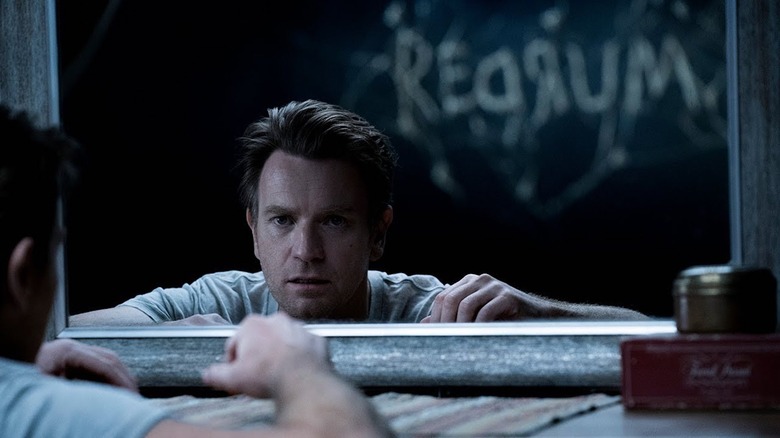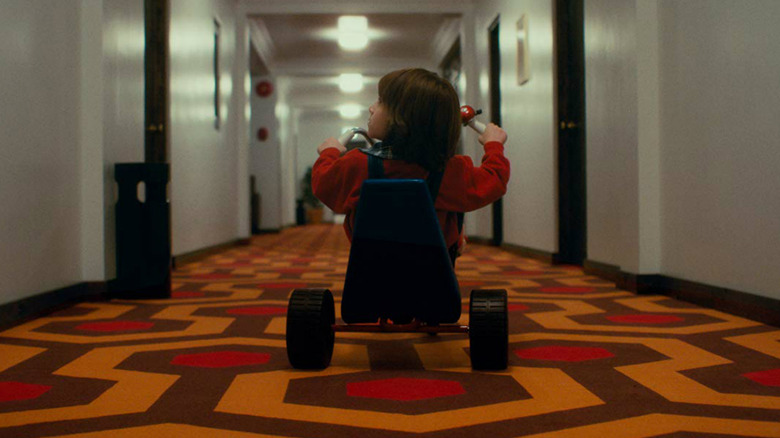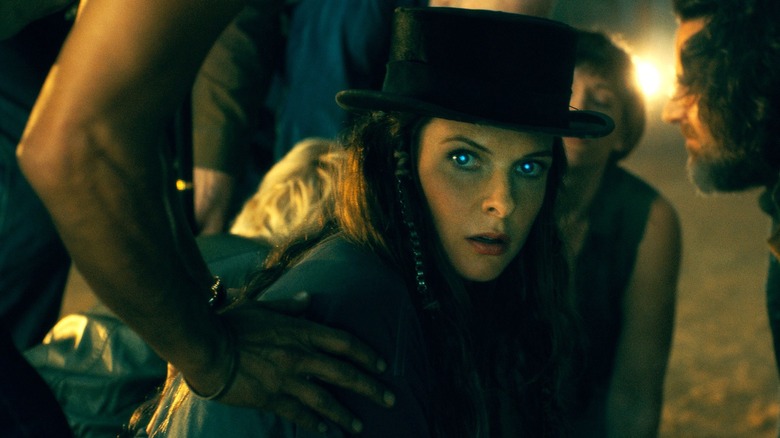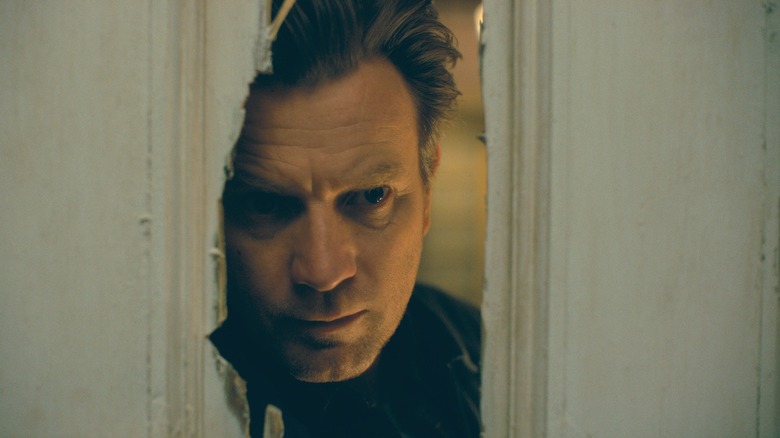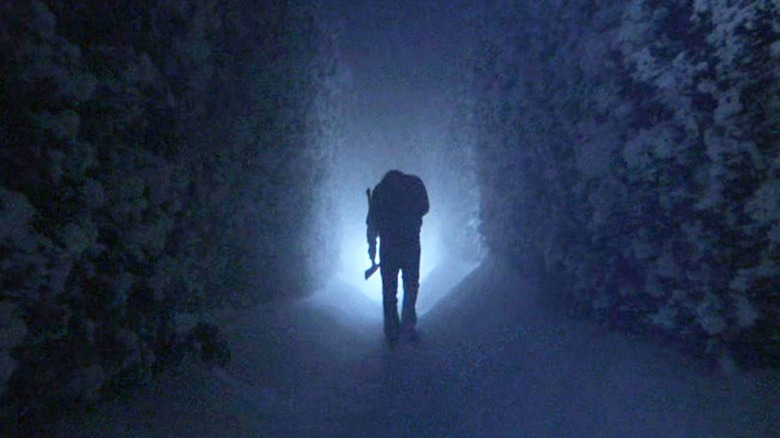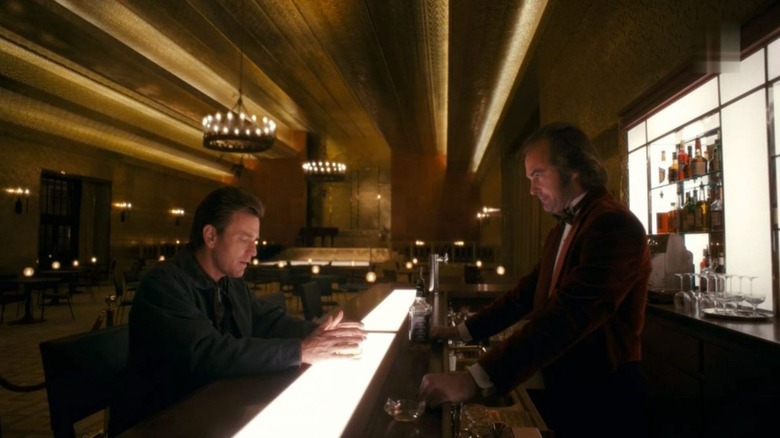The Daily Stream: Doctor Sleep Is The Best Of Both Stephen King And Stanley Kubrick
(Welcome to The Daily Stream, an ongoing series in which the /Film team shares what they've been watching, why it's worth checking out, and where you can stream it.)
The Movie: "Doctor Sleep" (2019)
Where You Can Stream It: HBO Max
The Pitch: Mike Flanagan's sequel to "The Shining" quickly fizzled at the box office, but it's actually really damn good and deserves an immediate reappraisal. It's genuinely disturbing, filled with great performances and does the miraculous job of bringing together Stephen King's source material and Stanley Kubrick's — shall we say ... liberal, if iconic — take on this world.
Why it's essential viewing
When writer/director Mike Flanagan took on the adaptation of "Doctor Sleep" he had two masters to appease: Stanley Kubrick and Stephen King. King notoriously disliked Kubrick's take on his novel, "The Shining," calling it cold and miscast, so when he wrote a sequel to his novel there was naturally very little connective tissue to "The Shining" that non-readers have in their heads.
As a novel, that's an easy leap to take, but for any movie adaptation of the sequel to "The Shining" there was going to be a huge challenge in tackling this material visually and making it feel like a worthy successor to one of the most iconic horror movies of all time.
When I say Flanagan pulled off a miracle here, it's not that the movie is just well done (which it is) or that it captures the right tone for a "Shining" follow-up (which it does), it's that he somehow makes this film an olive branch that can unite fans of the original King book and the Kubrick adaptation.
Inherited trauma is the center of the story
"Doctor Sleep" tells the story of grown up Danny Torrance. He and his mother survived a brutal winter trapped in The Overlook Hotel and an attack by his alcoholic father, but the psychic boy is left literally haunted by the spirits he encountered there. He learns a trick to dealing with the not-so-happy haunts, but a combination of the trauma he endured and a genetic predisposition to an addictive personality puts the young man on the same path his father was on before him.
When we meet up with adult Danny, he's a blackout drunk who is scraping bottom so hard that you don't really have much faith that he can pull out of this particular nose dive. He has a drunken one night stand with another addict and ends up stealing every last cent this woman has, leaving a hungry toddler on his mother's vomit-laden mattress.
It's despicable, but it sets up the character instantly. He's a man on the run. Despite the uncertainty on his face and the obvious desire to do the right thing playing through in subtle ways, Danny makes the selfish choice, giving into some of the same darkness that his father did, albeit in a different scenario.
Jack Torrance's alcoholism was outward. In the original King novel, Jack was involved in a hit and run while on a bender and also assaulted a student of his, details that didn't quite make it into the film. In Kubrick's movie we do hear about Jack drunkenly grabbing his son after the boy got into his paperwork one night and dislocating his arm.
Yes, Danny's addiction hurts other people, but his personality is different than his father's. He directs most of it inward. Even at his worst, Danny has learned from the mistakes of his father, which is something of a theme in both King's novel and Flanagan's film.
And I'll say something possibly controversial here. I think that theme works better in Flanagan's movie precisely because he's tying it so directly, visually, to Kubrick's film.
Different endings, same themes
One of the interesting things Flanagan does here is that he finds a way to bring Stephen King's original "Shining" ending to the screen.
Kubrick's film ends with Jack Torrance chasing his son through a snowy hedge maze outside of the haunted hotel. Jack is totally demented at this point, the evil of the hotel infecting him so deeply that if he catches his son he will definitely kill him.
King's book paints Jack as a more tragic figure with a good man still buried deep inside there somewhere. The good side of Stephen King's Jack Torrance fights back, wrestling control over himself long enough for him to blow the hotel's boiler (and himself along with it), giving his wife and son a chance to escape.
The author has used the two endings to illustrate the difference in approach to the material between himself and Mr. Kubrick. The film ends with Jack frozen, the book ends with a roaring blaze. The former is cold, the latter is warm and according to King that's all you need to know about the book and the movie.
Flanagan incorporates the original "Shining" ending into "Doctor Sleep" by giving Danny Torrance his father's arc. Jack Torrance inflicted untold horrors on his boy's psyche, traumatizing him but good for the rest of his life, but he also managed to teach his son by example. Danny Torrance knows what kind of monster he could become if the booze or ghosts or whatever problems he has gets the better of him because he's seen it before, up close and personal.
You'll notice this thread is developed visually and thematically on Danny's journey to protect a young girl with "The Shine" from a band of near immortal transient monsters calling themselves The True Knot. He has a job interview that is framed and executed in exactly the same way as Jack Torrance's interview to become caretaker of the Overlook. He has a moment of temptation with his very own Lloyd the Bartender. But in every mirrored moment where Jack Torrance gave into the darkness, Danny rejects it.
Could that be the lasting legacy of his father; the one good thing to come out of his struggle with his inner demons? He set an example for his son.
In that way, this story serves as a small redemption for Jack Torrance, both the highly tortured and complicated man that King wrote and the cracker jack loon that Jack Nicholson played in Kubrick's film.
The legacy of Jack Torrance
As a fan of both the film and the original source material I've always been a believer that King and Kubrick's takes on "The Shining" compliment each other in a way that most people tend to overlook (pardon the pun). The power of a novel is it can put you inside the character's heads in a way that a film can't. Despite some obvious differences (King had creepy hedge animals instead of a maze, the aforementioned difference in endings, etc.) there's very little in the book that couldn't be read into Kubrick's film.
Wendy's internal struggles about standing by her man as he slowly goes insane can be read in Shelley Duvall's performance. Jack Nicholson might start the movie at a 10 already, but there's nothing saying he didn't have the same complex love for his family, especially his son, as the Jack Torrance of the book.
Like I said, they compliment each other and I think Flanagan agrees with that as his sequel is all about embracing both the book and its iconic adaptation, giving reverence to both without excluding either one. The ending is a perfect example of this.
In the novel, "Doctor Sleep," Jack Torrance has a more direct part to play in the finale. In both versions, Danny lures the evil Rose the Hat to The Overlook, knowing full well it's a dangerous place for those that shine. In the book all that remains is a burnt husk and during the finale, Danny is aided by the ghost of his father.
The Jack Torrance of the book already sacrificed himself to save his family, which maybe doesn't make up for him spending a whole hell of a lot of time trying to kill them, but hey, at least it's a step in the right direction.
Why Doctor Sleep is one of the most fascinating Stephen King adaptations ever made
In the film, Flanagan folds Jack's story over into Danny's a little more antagonistically, as Jack has now replaced Lloyd as the bartender and he's the one trying to tempt his alcoholic son with a drink, on the very same barstool his father sat on 40 years prior, no less. Danny is a better man than his father, though, and he doesn't fall into temptation.
Flanagan's adaptation had to be both a sequel to the Kubrick movie and be true to the book, so what he does is give Jack Torrance's sacrifice to Danny, finally giving the readers the ending they've wanted to see for over 40 years while still respecting the Kubrick film.
In that way, it's one of the most fascinating Stephen King adaptations ever made.
As a heads up, the version of "Doctor Sleep" that was just added back to HBO Max is the theatrical version, which is super solid, but if you haven't seen it I highly recommend you track down the Director's Cut, which is an hour longer but feels shorter somehow.
The Director's Cut of "Doctor Sleep" is more novelistic, which blurs the line even further between King's source material and the visuals of Kubrick's film. Plus more footage of Rebecca Ferguson being an incredibly intimidating psychic vampire with a rad hat is always a good thing. This is something everyone can agree on, I think.
